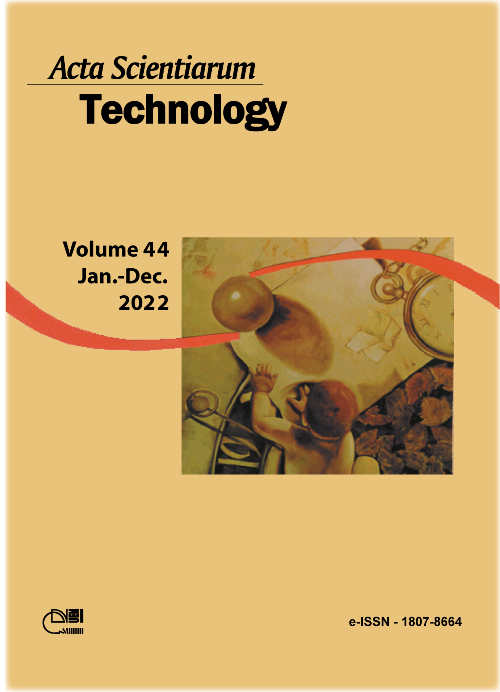Agroindustrial co-products and waste cooking oil in the production of lipases by thermophilic Bacillus licheniformis SMIA-3
Abstract
The present study investigated the potential lipase production for Bacillus licheniformis SMIA-3 using the agro-industrial co-products: orange flour (OF) and grape flour (GF) blend waste cooking oil (WCO). The OF was selected due to its best source for lipase production observed in preliminary tests. Therefore, OF was tested at different fermentation times at 50°C using the statistical design Central Composite Rotatable Design (CCRD) allied to the response surface. An optimal region was found with lipolytic activity of 0.349 U mL-1 with OF and WCO filters around (0.50% w v-1) and between (0.55 and 0.75% w v-1), respectively, and the fermentation time at the central point (42h). Data supplied a method to produce lipase using orange flour and frying oil, as a way to reuse these waste as feedstock to obtain employable lipase and lower production costs with biotechnological applications in industrial sector
Downloads
Copyright (c) 2022 Acta Scientiarum. Technology

This work is licensed under a Creative Commons Attribution 4.0 International License.
DECLARATION OF ORIGINALITY AND COPYRIGHTS
I Declare that current article is original and has not been submitted for publication, in part or in whole, to any other national or international journal.
The copyrights belong exclusively to the authors. Published content is licensed under Creative Commons Attribution 3.0 (CC BY 3.0) guidelines, which allows sharing (copy and distribution of the material in any medium or format) and adaptation (remix, transform, and build upon the material) for any purpose, even commercially, under the terms of attribution.
Read this link for further information on how to use CC BY 3.0 properly.





















